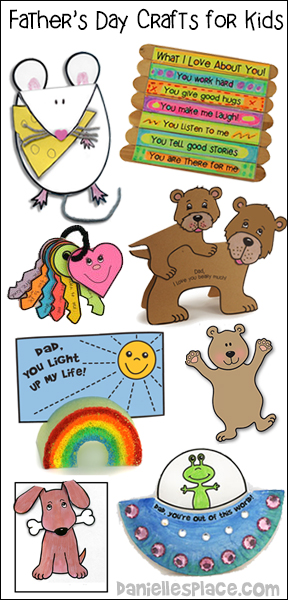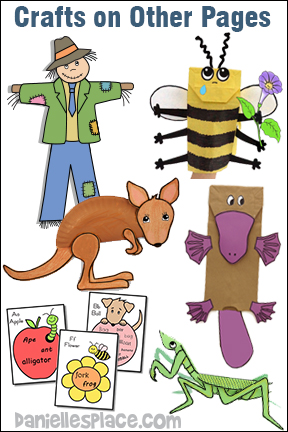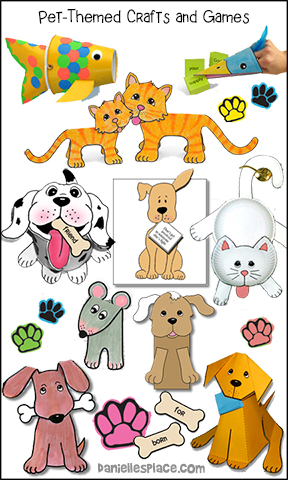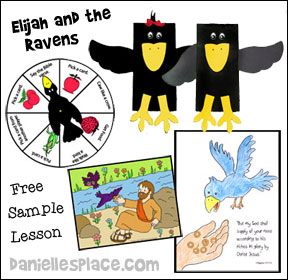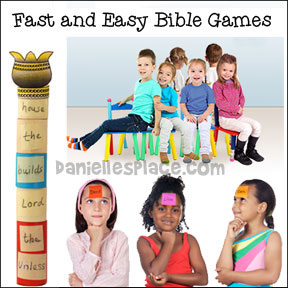Teaching Home School Children With Special Needs
Ideas to Make Educating Your Special Needs Child Easier
Dear Reader, I am not an expert and have had no formal training in teaching children. I am a mom with a special needs child and have done everything I can to help her learn and keep up with her schoolwork while dealing with her challenges. The following ideas are things that have worked with my child. I have written them down in hope that they will also help other parents who are struggling with a difficult child.
Don't Try to do it All Yourself - Ask For Help and Guidance
1. Start your day with prayer and reflection. Pray for your child and ask for wisdom on how to deal with him or her every morning. Keep a journal and write how the day went, what you accomplished, or how you goofed up. Think about what went right, and what went wrong, and how you can make it better for you and your child. Forgive yourself for losing your patience.
2. Say you're sorry to your child when you loose your patience.
3. Find people who may want to help with some aspect of your child's education. A friend or grandparent may be able to help with certain subjects. Don't try to do it all yourself.
Find Something Your Child is Good at and Something He Can Be Proud Of
1. Find something he is good at and help him become even better at it. Don't concentrate on your child's weaknesses. Concentrate on his strengths. If he is good in math, work on math. Let him know he is good at math and help him to be even better so that he has something to be proud of. When he has an accomplishment to be proud of he won't feel so bad about his weaknesses. Let him know that not everyone can be good at everything. Help him find something he loves to do and become an expert at it.
Work on His Weaknesses, But Don't Push to Frustration
1. Find fun ways to help him with the subjects he has a hard time with. Use games, activities, hands-on learning, and rewards to motivate your child. You will find lots of ideas on this site that will help. See the Educational Math Crafts and Activities Page, Education Crafts and Games for Kids, Great Children's Books, and Educational Crafts.
2. If your child shows an interest in anything, go with it. If he asks you a question such as, "How do they make pencils?" Don't say, "I don't know," say, "Let's find out." or "As soon as we finish this, we will try to find out." Write it down so you don't forget, and your child can go back to concentrating on what he is supposed to be doing, then look it up on the Internet, or go to the library.
3. If your child has a special interest such as animals or cars, center his studies around that subject. Talk to him about learning as much as he can about that subject so that when he is older he might pick it as a career. If he doesn't feel like reading, remind him that if he wants to be an expert in this area, he will want to learn as much as he can about it. Find every book you can about that subject, and have your child read about it. If he is interested in it, he will do much better. Before you start reading go through the book with him and look at the pictures. Ask questions about the pictures such as "Why do you think he has that on his head?" Create interest in the book so that he will want to find out more. If your child has a hard time reading, make deals with him. You can say, "If you read this whole page, I will read the next one." Or tell him to try to listen and look for one or two particular words that he might me interest him. For example, if you are reading about cars, tell him to look for the word car or automobile while you read.
4. If you can't find books that are at his level on the subjects he likes, use harder books and just have him read the words he can. Or stop every time you come to an important word that you want him to learn. For example, if he likes cars and you are reading about cars, read a sentence and stop every time you come to the word car and have him read it.
5. If your child likes horses, do math related to horses. If you read about height of a horse, get out your measuring tape and show him how tall that is. Make up games relating to horses for his level. You can have him count horses, create a horse race game, etc. Make up math problems relating to horses. For example, you could ask, "If I own three horses and buy two more, how many horses will I own? Or find out how much a horse cost and discuss money. Ask things like, "If I have a hundred dollars and a horse cost three hundred dollars, how much more will you need to buy the horse?" Study spelling and vocabulary words that relate to horses. When reading stories about horses write down words that your child has a hard time remembering. He will be much more interested in learning words about the things he enjoys than just learning a list of random words. Use the words he learns to help him learn other words. For example, if he learns how to spell the word car and is having trouble with the word card, tell him that it is spelled a lot like car. He may even be interested in learning all the words he can with the word car in them.
Don't Try to Teach in a Conventional Way. Do Whatever it Takes to Keep your Child Interested in His Studies.
1. Don't overwhelm your child with paperwork. Don't place a worksheet in front of him if it he can't handle it. Use the problems on the worksheet in a game instead. (You will find lots of ideas for games on this site.) When you are done playing the game, you can show him the worksheet and tell him that he just did all the problems on the page.
2. If you child has a large assignment break it down into smaller portions. For example, if he has to do thirty problems, give him only five at a time, and take a break or do something fun in between each set of problems. Foam structures are great to use with children who can't sit still for very long. Break up their worksheets into sections and tell them to do the first five problems sitting on top of something, the second five problems sitting under something, besides something, over, leaning against, hanging over, hidden behind, etc. until all the problems are finished. If you don't have room for foam structures, you can use couch pillows, and other toy structures to do the same thing.
Foam Shapes Provide a Wide Array of Active Learning Activities:
1. Set up an obstacle course using the foam shapes and each time your child gets a problem correct let him run the obstacle course.
2. Each time your child get a problem correct or finishes a certain amount of problems, let him play with the structure. Challenge him to build things out of the shapes such a car, dog, tractor, house, etc.
3. Set up an obstacle with the foam shapes. Place sticky notes with math facts or words on each note and stick them to the shapes. See how fast your children can run through the obstacle course while reading the words or answering the problems on the notes. Time him and then see if he can beat his time.
4. Tell your child to make a comfortable reading area with the shapes before starting his reading assignment. He may be more interested in reading if he can pick how and where he wants to read.
5. "Can You Do This?" Game - As a reward for finishing an assignment play "Can You Do this?" game. Encourage your child to come up with a short short routine using the foam shapes or special action and see if you can copy his routine or action. For example, your child may demonstrate going through the arch shape backwards. You should then try to copy his actions.
6. Give your child incentives to do his work. Tell him if he completes a certain amount of problems, he will get to do something special. It doesn't have to be anything big. It could be something like he can watch five minutes of a video, or play a game for five minutes, etc.
Use Props, Puppets, Computer Games or Things Your Child Can Relate To
1. If your child has learning difficulties, he may begin to believe that he is stupid and that everyone else is better than him. You can help him realize that he isn't the only one in the world who has difficulties. Use a puppet and pretend it has the same difficulties as your child. For example, if your child is having a hard time reading, use a puppet that also has a hard time reading. Your child will gain confidence when he can help the puppet learn to read. You can also make the puppet have some of the same characteristics as your child so that he sees how difficult they are to deal with sometimes. For example, if your child has a hard time sitting still or looses his patience easily, make your puppet act the same way. Your child will want to help the puppet with his problems and at the same time help himself deal with the same problem.
2. If your child has a problem with writing everything perfectly (OCD) and can't seem to finish a paper because of his obsession, have your puppet be the same way. Give the puppet the same worksheet you give your child. Have the puppet erase the same answer over and over until he gets is exactly right, and make your puppet sound frustrated. Your child will see that the puppet is having problems getting past the first problem and may want to help. He may try to reassure the puppet that he wrote it good enough, and he should go on to the next problem. When your child is telling the puppet how to overcome its problems, he is also teaching himself how to overcome his own. Then he may be able to tell himself the same thing he told the puppet and be able to go on to the next problem by himself.
3. If your child has a hard time completing a worksheet, have the puppet do it for him. But make the puppet answer some of the questions wrong so that your child has to go back over the worksheet and correct them. This way he is doing the worksheet and doesn't even know it. When your child finds a wrong answer have the puppet look very disappointed or moan. Your child will probably try to reassure the puppet that everyone makes mistakes. This may also help your child realize that it isn't all that bad if he gets a problem wrong. This is a great technique for a child with OCD who obsesses about every problem.
4. Children with sensory issue may not like touching a pencil or the paper, in this case you can write down what he or she tells you to write or you can have your child use a hand puppet over his writing hand. The writing my not look that great, but all that really matters is that your child understands the problems.
Don't Worry About Not Having a Well-Rounded Child Because You Are Concentrating on His Interests Instead of Following a Curriculum
1. Your child's interests will change or grow to other areas in time. (Unless he becomes obsessed with the subject. Then you might try to get him interested in something else.) Your objective is to teach him to read, write, and do math. If he can do these, he will be able to teach himself the things he has missed when the time is right. Another way to think about this is that people who are successful in life are most often people who have a passion for one thing and concentrate all their energy on that one thing so that they become good at it.
Be Flexible - If it Isn't Working, Try Something Different
1. Don't think because you aren't following a curriculum and your child hasn't completed every worksheet that he isn't learning. Your object isn't to get him to finish a worksheet. It is to teach him how to teach himself, how to find the answers to his questions, and to motivate him to pursue his interests. He will learn everything he needs to know when he learns to love learning. Learning isn't completing worksheets, its pursuing an interest and loving it.



